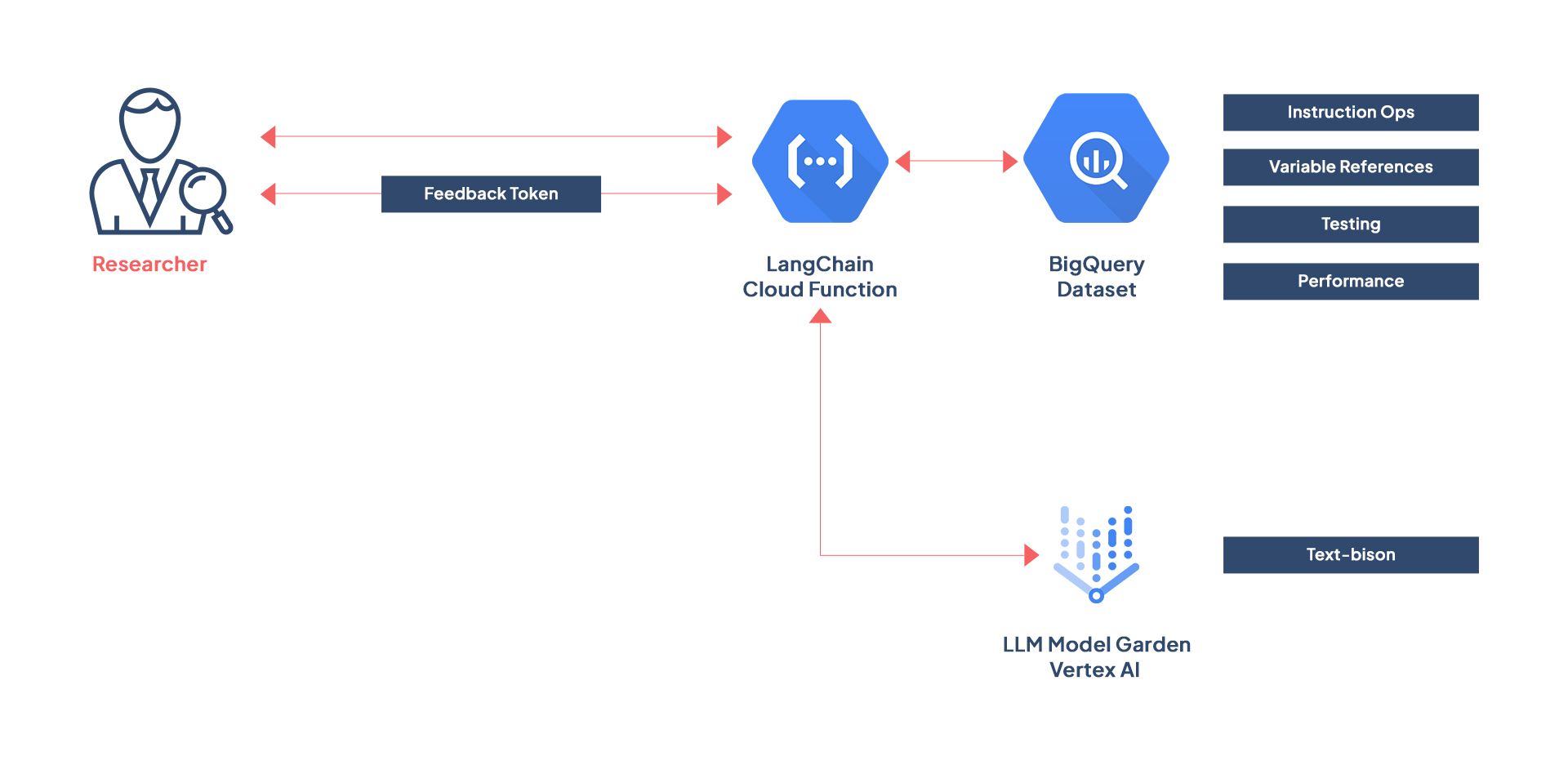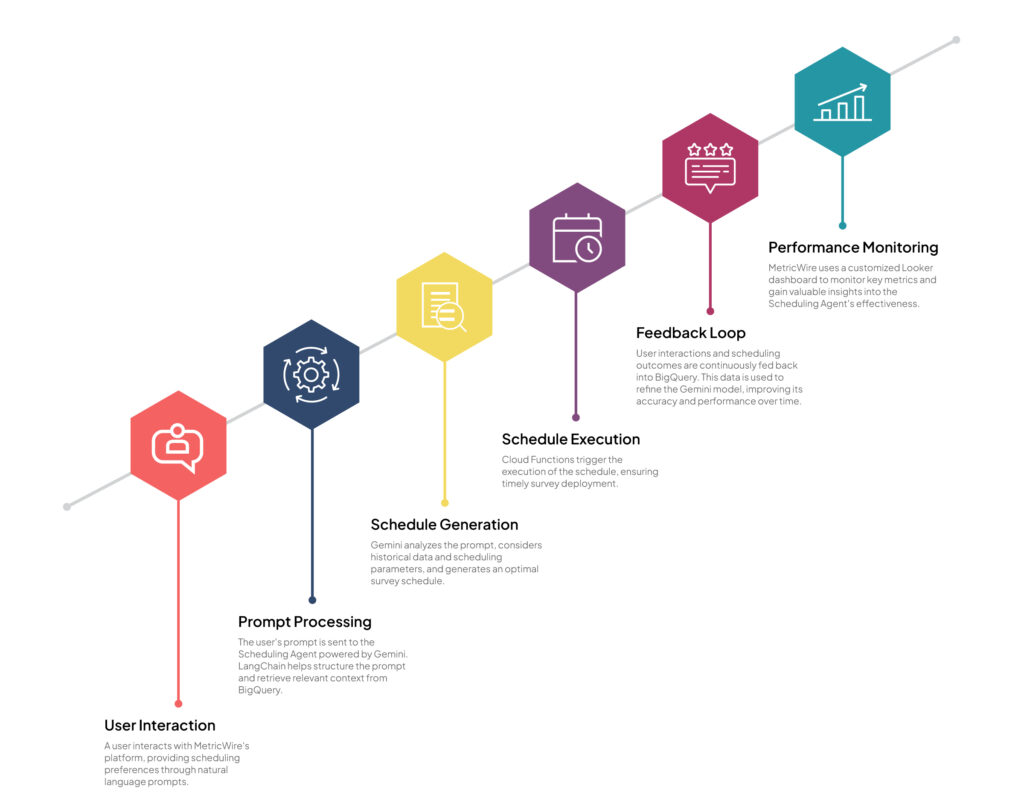About the customer
Metricwire supports healthcare and life science organizations in improving patient care and achieving better health outcomes. Their digital platform for clinical research integrates real-time cognitive, behavioral, and biometric data, providing a holistic view of patient health. Trusted by top institutions worldwide, Metricwire empowers researchers with precise, individualized insights to reveal what truly works for each patient.

- Healthcare: Patient monitoring, clinical trials, behavioral health research
- Social Sciences: Surveys, observational studies, longitudinal research
- Market Research: Product testing, consumer behavior analysis
- Transportation: Travel behavior research, urban planning
- Environmental Studies: Pollution monitoring, impact assessment
The challenge
Scheduling tasks and activities for adaptive, real-time clinical trials that depend on numerous variables is a complex challenge. Metricwire needed a scalable way to manage dynamic scheduling with multiple constraints, all while delivering a seamless user experience.
To overcome this, Metricwire wanted to create a dynamic scheduling system that could adapt to these real-world variables. This meant:
- Handling dynamic scheduling: The system needed to go beyond simple calendar reminders and factor in various conditions, trigger types (like location or time), and even allow customized prompts to appear based on a participant’s context.
- Ensuring scalability: As Metricwire grew and researchers designed more complex studies with larger participant pools, the system needed to handle increasing volumes of data and user requests without impacting performance.
- Providing a seamless user experience: Despite the complexity behind the scenes, researchers needed an intuitive interface to easily design their scheduling logic, and participants needed a smooth, unintrusive experience when receiving survey prompts on their devices.
The solution
Our team leveraged Google Cloud’s Vertex AI and Gemini to develop a sophisticated “Scheduling Agent” tailored specifically to Metricwire’s needs. This solution moved beyond simple rule-based scheduling to intelligently interpret researcher requirements and participant context.

Key components of the solution





How it works

Results
The implementation of the AI-powered Scheduling Agent yielded significant improvements for Metricwire:
- Increased Scheduling Accuracy: The system demonstrated a remarkable improvement in scheduling accuracy, ensuring surveys are deployed at the optimal times based on user preferences and historical data.
- Reduced Latency: Average latency dropped to under one second per request, even for complex scheduling scenarios, providing users with a seamless and responsive experience.
- Improved Scalability: The system efficiently processes over 100 scheduling tasks weekly, showcasing its ability to handle growing data volumes and user demands.
- Schedule Generation: Gemini analyzes the prompt, considers historical data and scheduling parameters, and generates an optimal survey schedule.
- Enhanced Confidence: Overall confidence in the system’s responses consistently exceeds 90%, reflecting the accuracy and reliability of the AI-powered solution.
- Data-Driven Optimization: Continuous feedback and performance monitoring through BigQuery and Looker enable ongoing refinement of the PaLM2 model, leading to further improvements in accuracy and efficiency.
“Partnering with Onix to develop our AI Scheduling tool was a valuable experience. They understood our business challenges, validated key assumptions, and kept the engagement aligned with our ROI goals. The implementation of the AI Scheduling tool exceeded our expectations. Onix played a critical role in our decision to strategically align our roadmap with Google’s AI offerings.”
Brian Stewart CEO,
Metricwire
Conclusion
The new scheduling system has delivered clear improvements in both efficiency and user satisfaction. By reducing scheduling latency to under one second and significantly improving accuracy, the system has streamlined operations and enhanced responsiveness. The use of BigQuery to analyze user data played a key role in continuously refining the system, ensuring it adapts to changing needs. With the ability to process over 100 weekly tasks and maintain over 90% accuracy, the system proves reliable, scalable, and effective.
This case study demonstrates the value of taking a proactive approach with an AI-powered scheduling agent. By leveraging AI, businesses can improve performance, reduce manual errors, and stay ahead of the competition, all while driving stronger user satisfaction and maximizing return on investment. The system also positions the organization to remain agile and competitive in an evolving digital landscape.






